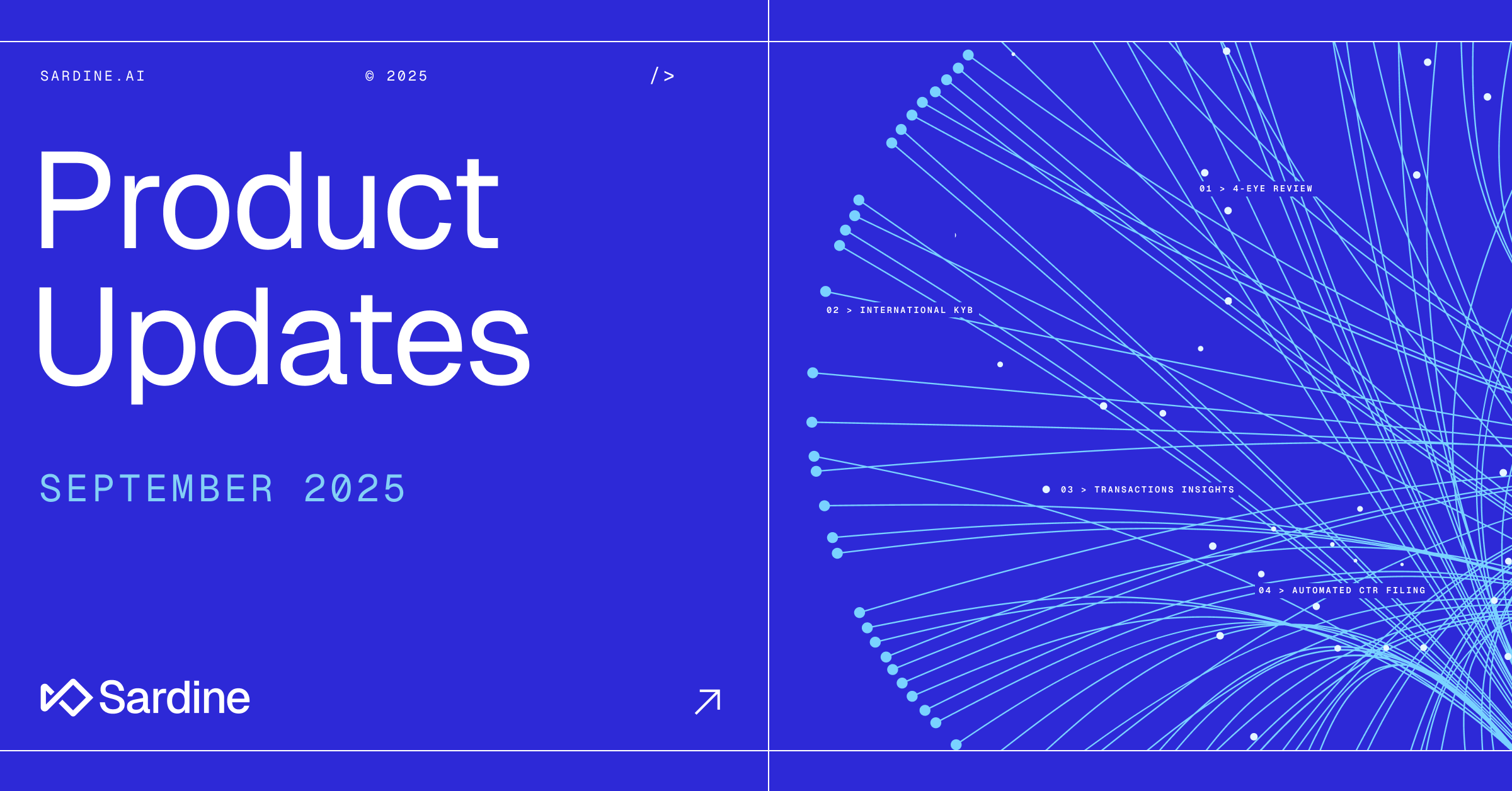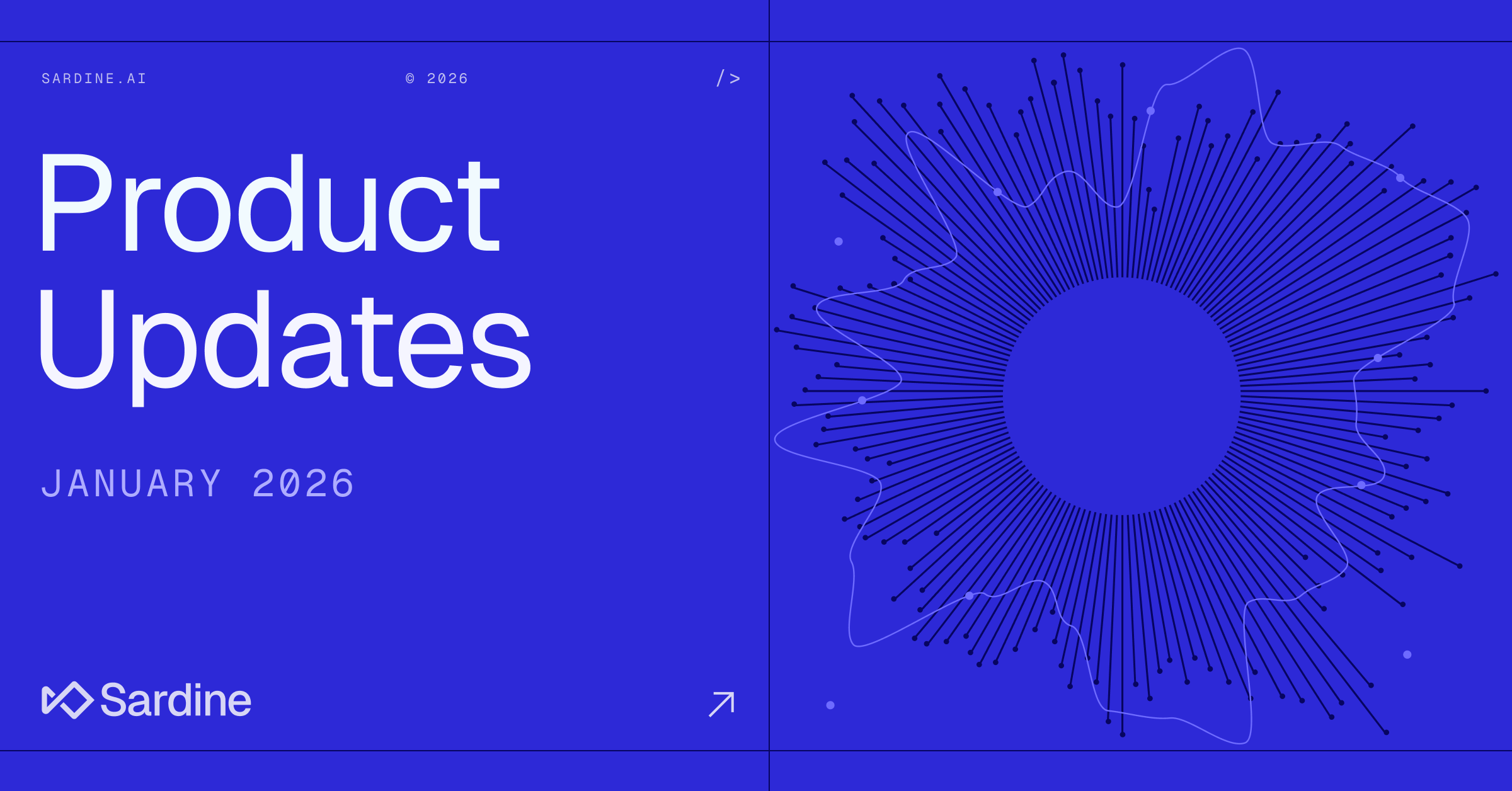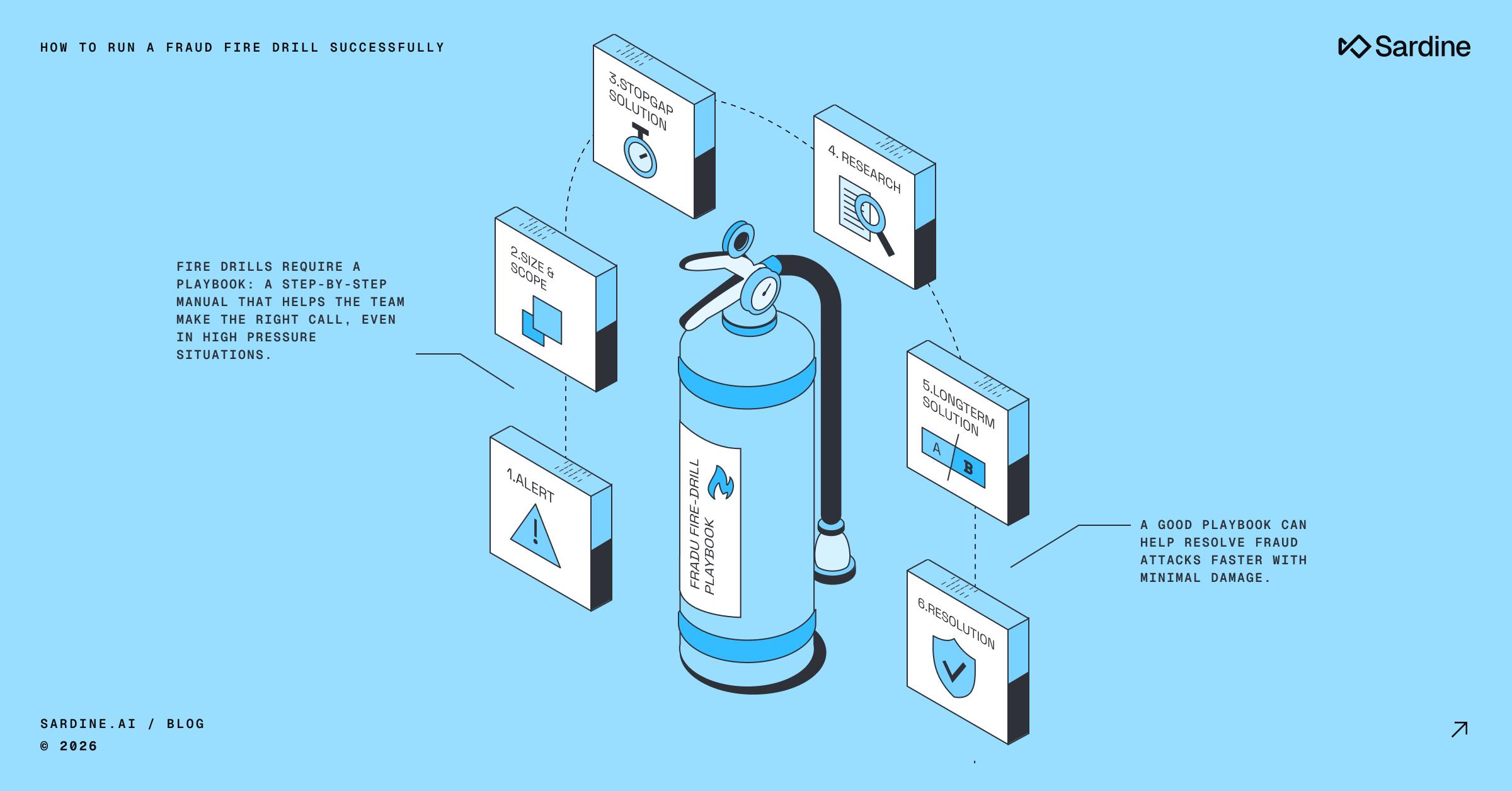Sardine Product Updates: September 2025
This September, Sardine introduced updates that help risk and compliance teams work more effectively across investigations, case management, and regulatory reporting.
The new capabilities make it easier to validate high-risk cases with oversight, verify businesses globally with accurate and up-to-date data, visualize transaction activity for faster reviews, and file required reports with consistency and timeliness. Together, these improvements reduce manual effort and increase confidence in day-to-day operations.
Four-eyes review for case management
Compliance teams often need a second set of eyes on high-risk cases before they’re closed. Sardine now supports Four-Eyes Reviews directly within our Case Management, giving institutions the ability to require dual validation on critical investigations.
Here’s how it works: analysts conduct their investigation as usual, then escalate the case to a designated reviewer. Once escalated, the reviewer becomes the only person able to update or close the case. Reviewers can either approve the decision, or request additional information, sending it back to the analyst.
This feature is designed to help compliance teams:
- Reduce errors or omissions by ensuring every case has independent oversight
- Prevent bias by adding a second perspective to key decisions
- Strengthen audit trails with clear, defensible review workflows
- Foster collaboration between junior analysts and senior reviewers
With our Four-Eyes Review feature, institutions can operationalize a standard compliance control directly in Sardine, improving investigative quality without adding manual overhead.

International business verification (KYB)
Compliance and risk teams often struggle to verify businesses outside the U.S. when data is incomplete, outdated, or difficult to access. With Sardine’s new International KYB, you can now verify and continuously monitor businesses in real-time across more than 200 countries and jurisdictions.
This feature connects directly to authoritative corporate registries, providing access to up-to-date company filings, ownership details, and status changes as they occur. By sourcing information directly from the registries, our International KYB solution reduces false positives by ensuring you are working with accurate, reliable data.
For compliance teams, this means faster onboarding and more defensible due diligence. For risk teams, it enables continuous monitoring of global business relationships, automatically surfacing important changes like new directors or dissolved entities without manual effort.
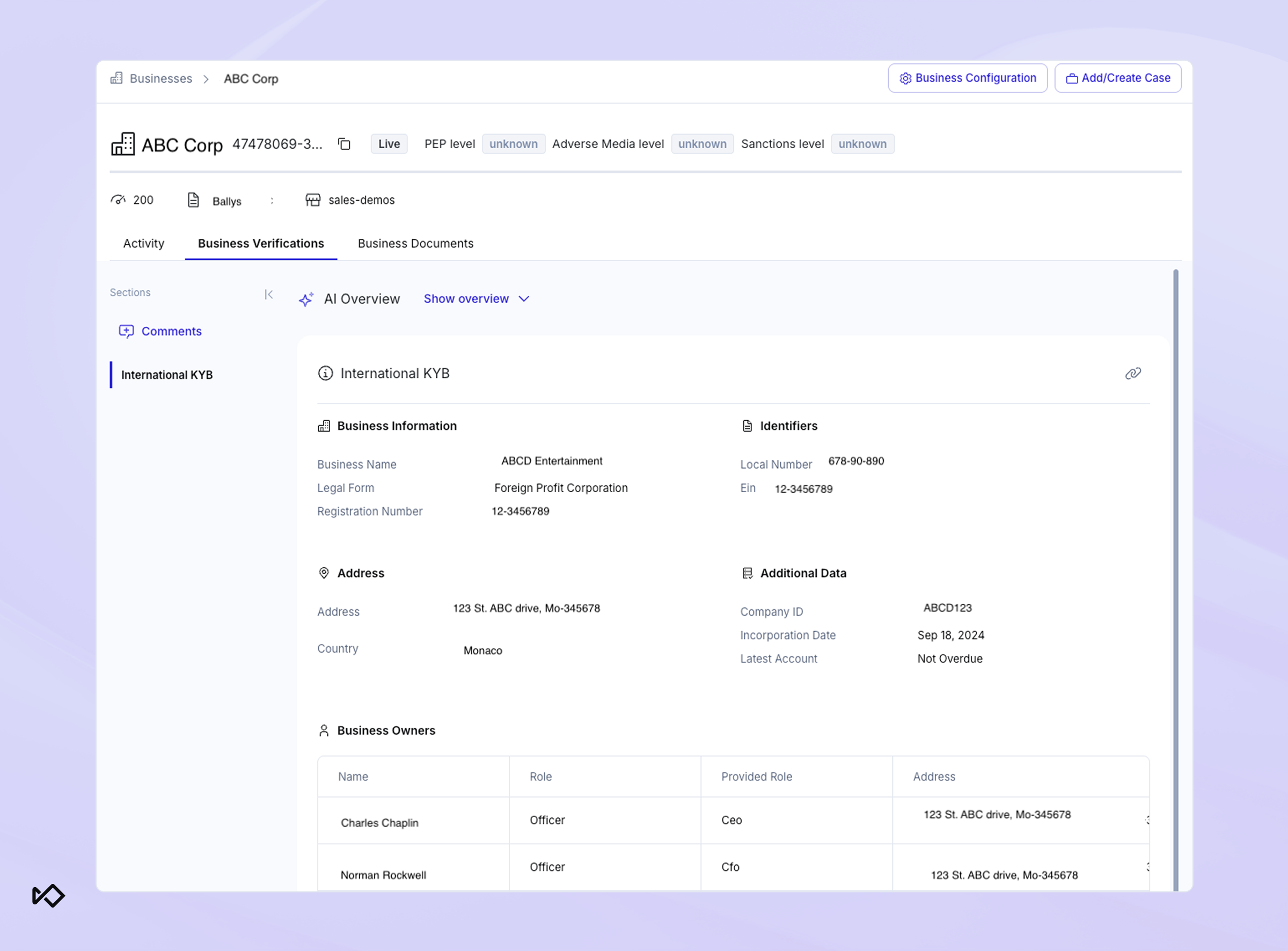
Transaction insights on customer profiles
Investigators need more than raw data to understand a customer’s financial story. Sardine’s new Transaction Insights provide a visual summary of transaction history directly within the Customer Profile page, helping both fraud and AML teams move faster during reviews.
The new Chart view in the Transactions widget highlights three key areas:
- Overall transaction volume over time
- customer’s top counterparties
- Most frequent spending categories
Instead of scrolling through long lists of individual transactions, investigators can now spot patterns, peaks, and anomalies at a glance.
For fraud and compliance teams, this means faster triage and stronger context when reviewing alerts or cases. Analysts can quickly identify unusual activity, confirm expected behavior, and make data-driven decisions with more confidence. By turning raw transaction data into clear, visual insights, Sardine helps teams cut investigation cycle times while improving accuracy.
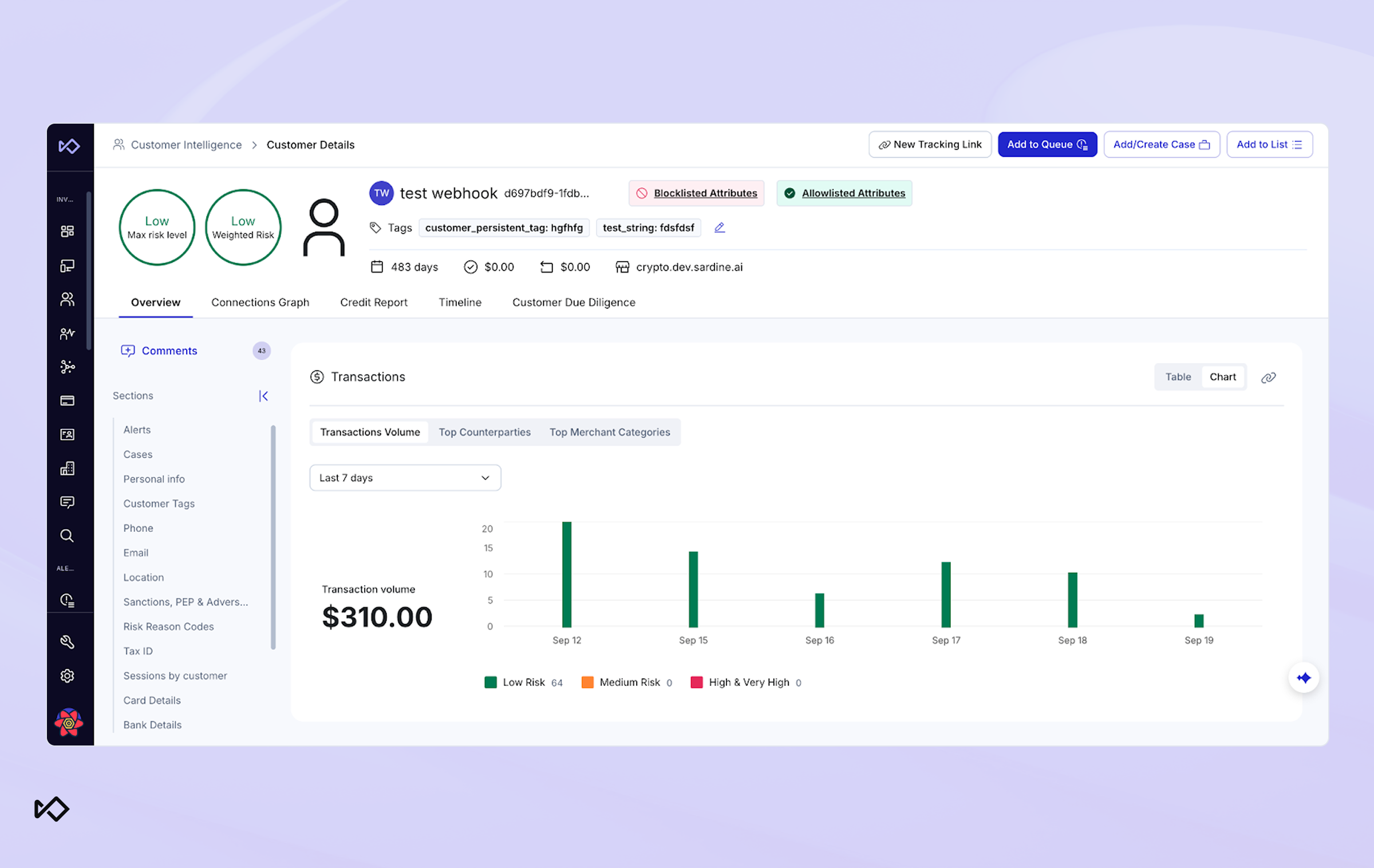
Automated CTR filing
Filing Cash Transaction Reports (CTRs) is a mandatory part of AML compliance, but the process is often time-consuming and prone to error. With Sardine’s new Automated CTR Filing, compliance teams can now generate, review, and submit CTRs directly to FinCEN from within the platform.
When a cash transaction exceeds $10,000 in a single business day, Sardine automatically aggregates the relevant activity and pre-fills the CTR template with customer and transaction data. Built-in validation checks catch errors or missing fields before submission, reducing the chance of rejections and ensuring reports meet FinCEN requirements.
This feature helps compliance teams meet regulatory deadlines with less manual work, greater accuracy, and full confidence in their filings. By centralizing the process in Sardine, institutions can eliminate duplicate data entry, maintain consistency across reports, and spend more time on higher-value investigations instead of paperwork.
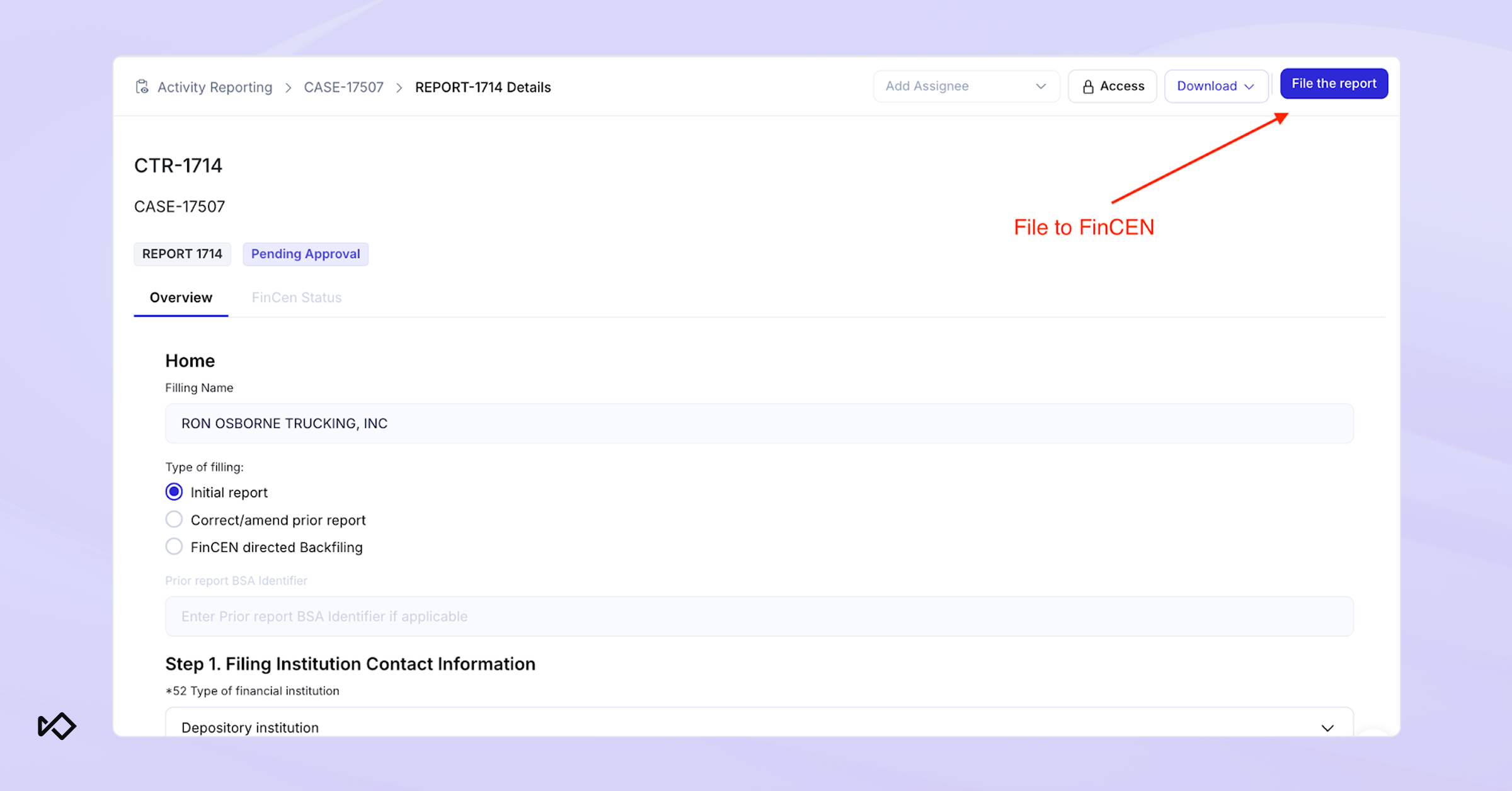
One-click case creation from alerts
Creating cases manually from alerts can slow analysts down and introduce inconsistencies. Sardine now makes it possible to generate cases directly from alerts with a single click.
This feature ensures that every case is created with standardized fields and templates, reducing the risk of errors and maintaining consistency across investigations. Analysts save time by skipping repetitive data entry and can focus instead on higher-value activities like reviewing evidence and assessing risk.
For compliance teams, automated case creation also strengthens audit readiness by ensuring all alerts that escalate into cases are documented in a consistent, defensible way. At scale, this means faster triage, better documentation, and more efficient use of investigative resources.
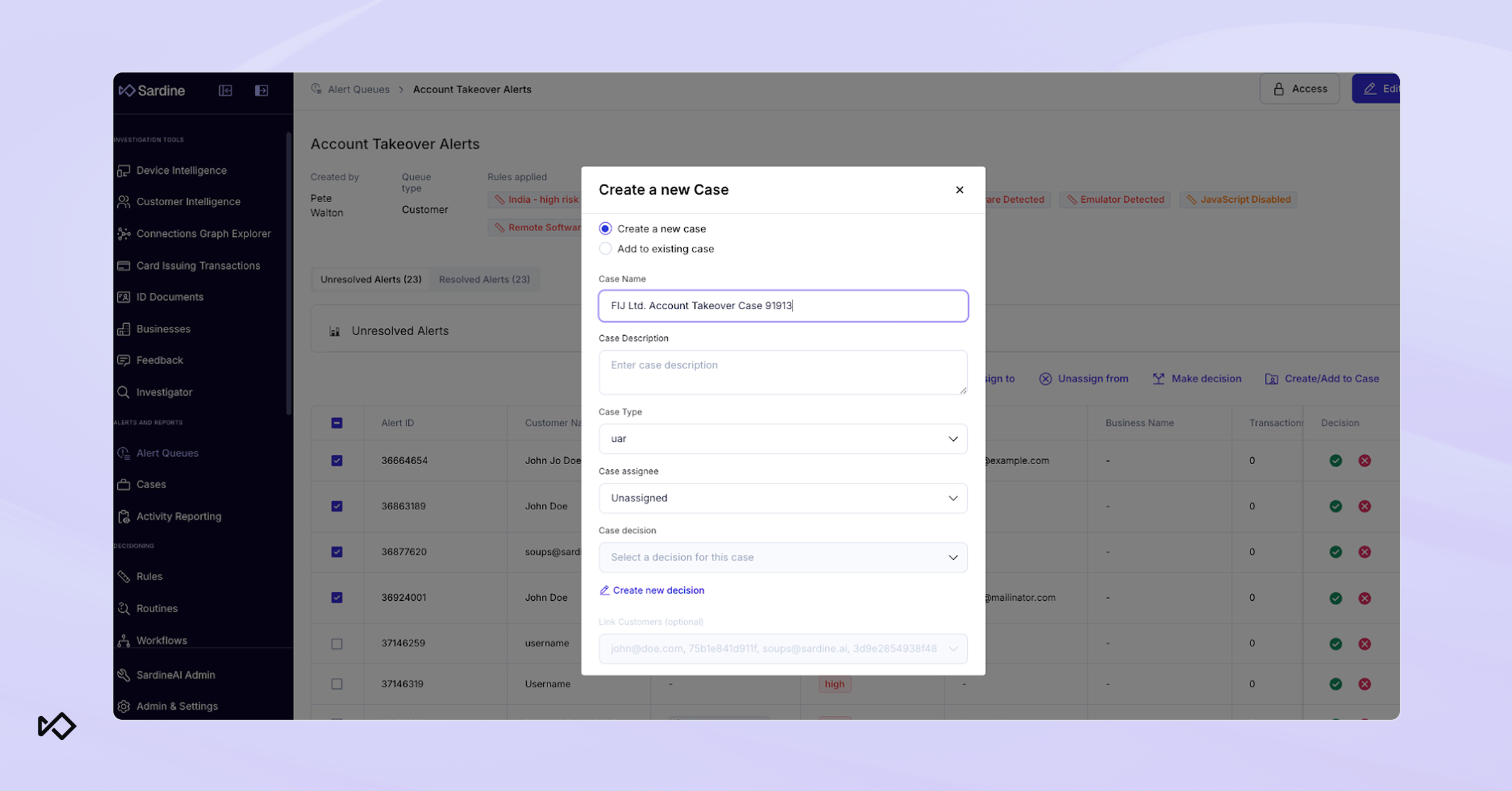
Advancing risk operations with Sardine
With this release, Sardine makes it easier to investigate complex cases, onboard global businesses, and meet regulatory obligations with confidence. Each feature is built to reduce manual effort while improving oversight, so compliance teams can focus on making better decisions, faster.
If you’d like to see any of these updates in action, get in touch for a demo. Subscribe to our blog to read about our new releases as we continue to expand and improve the Sardine platform.

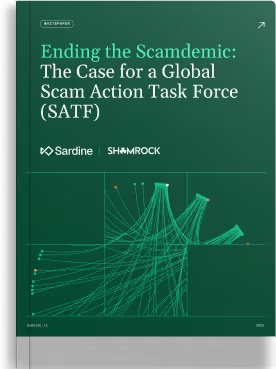
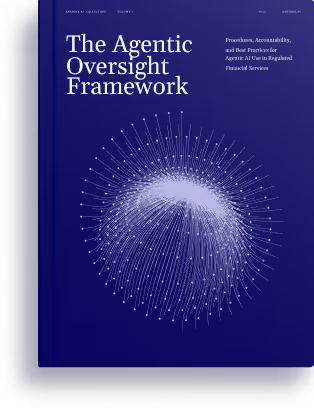
%20(1).avif)
